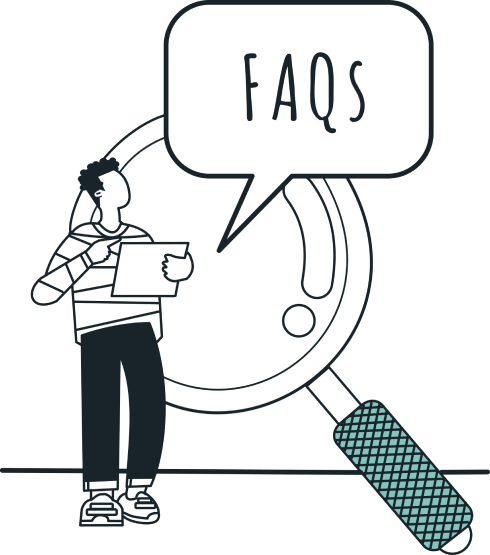Taxi Insurance
Get on the Road to Savings With Our One-Stop Taxi Insurance Comparison Service!

Do you need Taxi Insurance?
Taxi insurance is a legal requirement if you operate a hire and reward service with a vehicle.
Similar to car insurance, taxi insurance protects a motor vehicle for use on the roads. Unlike car insurance, taxi insurance can protect both your passengers and your ability to work.
You can’t operate a taxi service on standard car insurance legally and could face large penalties if you are found doing so.
Fear not, however, because taxi insurance isn’t a fair-weather friend, it’ll be there when you need it most!Public or Private Hire Insurance
Which One's for You?
Making sure you get the right taxi insurance is key to being protected when you’re working as a taxi driver. Public hire taxi insurance is for those who pick up passengers from the street without needing to have a prearranged booking. Private hire taxi insurance is the policy that is needed to give financial protection for drivers who operate their vehicles and services based on pre-booked rides.
Lower the cost of your
Taxi Insurance
Come rain or shine your taxi insurance will be there to provide the financial protection you need, but it doesn’t mean that you can’t save money on your taxi insurance to begin with. Below we’re breaking the ice around the topic of price and helping you find ways to pay less with our comparison service.
Pay Annually
This cuts costs by removing the monthly repayments which are usually subject to interest rates.
Improve Security
Thatcham-approved security and a dashcam can help you get a lower premium from certain insurers.
Avoid Modifications
Modifications to your vehicle could increase your premium, only add these if necessary.
Optional Extras
You should only add the extras you truly need, extras you don’t need or want will unnecessarily add to the price of your premium.

Find Your Next Taxi Insurance Policy
If you drive any form of vehicle that transports people on a commercial level, then by law you’ll need a taxi licence and insurance to go with it.
We’ve made finding your next taxi insurance policy easy. With our free, easy-to-use, online comparison service you can find your next policy in minutes.
With the rise of brands such as Uber and Lyft, taxi insurance isn’t reserved for the black cabs of London. Whether your taxi is private or public hire you’ll need to make sure you have a policy that covers you.
Our comparison service uses a panel of insurers that cover all types of vehicles, from sedans to minibuses and even allows you to consider if you transport schoolchildren. Therefore, we are confident that you’ll find a policy which meets your needs.
Articles and Guides

How to get cheaper taxi insurance prices
To get lower-cost taxi insurance premiums there are several things you can do, from improving your vehicle’s security to shopping around. You won’t be paying overpriced premiums by following our guide on how to get lower taxi insurance prices.
Do you need taxi insurance?
Frequently Asked Questions

Can you use a taxi for personal use?
No, you cannot use a taxi for personal use unless your insurance specifically says so. It is best to check with your insurance provider before attempting to use a taxi for personal use. Taxis are typically used as a commercial transportation service and are not designed for personal trips.
Do you need public liability insurance for a taxi?
Whilst not required by law, public liability is often an advised extra. This type of coverage can protect you from any claims that could arise from providing services to the public. In some cases, it can also help cover legal fees and other costs associated with an accident or incident involving your passengers. It is best to speak with your insurer to determine what type of coverage best suits your business needs.
How do you estimate your taxi’s mileage?
The best way to estimate your taxi’s mileage is to keep a logbook of all trips for a period of time, such as a month or quarter. This will allow you to get an accurate picture of how many miles your taxi has travelled and provide you with an estimated total at the end of the period. Additionally, you can also check your taximeter readings from each trip to get a better idea of how much mileage you have accumulated.
Why is taxi insurance more expensive than a car insurance?
Taxi insurance is typically more expensive than car insurance because of the added risk associated with providing services to the public. Taxi drivers are exposed to a higher level of liability due to the nature of their work and this means they need extra protection. Additionally, taxis also have extra wear and tear on their vehicles due to the number of passengers carried and this can result in higher premiums.
Can you cancel your taxi insurance?
Yes, you can cancel your taxi insurance at any time. However, it is important to understand that you may be liable for additional fees or charges if you do so. Some policies may also have cancellation periods in place which require you to give notice before cancelling the policy. Therefore, it is best to check with your insurer before proceeding with a cancellation.
It is also important to note that cancelling your taxi insurance could leave you exposed to potential liabilities if you are still providing services as a taxi driver, so it is best to speak with an expert before taking any action.
Do you get a no-claims bonus for taxi insurance?
Yes, you can get a no-claims bonus for taxi insurance. Most insurers will offer one to those who have been driving safely over a period of time and are free from any claims or incidents. Typically, the higher the number of years your policy is in place without claiming, the larger your discount will be.
Can you get immediate cover for your taxi?
Yes, you can get immediate cover for your taxi. However, it is important to note that most policies will require an initial payment upfront before coverage can be offered. Additionally, the insurer may request documentation and proof of driving experience prior to offering a policy. It is best to speak with your insurer before purchasing a policy to ensure you have all the information you need.
Can family members drive your taxi under your insurance?
No, family members cannot drive your taxi under your insurance. Most insurers will only cover drivers who are professionally licensed with the correct qualifications and have been approved by them. Additionally, it is important to note that usually, policies do not provide coverage for any non-paying passengers in the vehicle at the time of an incident.
Do you need public or private hire insurance?
This will depend on the type of services you are offering. Generally speaking, if you are providing services to the public then you will need public hire insurance. However, if you are only providing a service to private individuals or companies then private hire insurance may be sufficient. It is best to speak with your insurer for more information and advice before purchasing a policy.
It is also important to note that many insurers will offer bundled policies which provide coverage for both public and private hire services. These can be a more cost-effective option if you are providing services of both types.
How long do your quotes remain valid for?
Your quotes from insurers typically remain valid for up to 30 days, depending on the insurer. After this period, you will need to re-submit your request and obtain new quotes. You should also keep in mind that insurance policies may change over time so be sure to check with the insurer prior to purchasing a policy.
